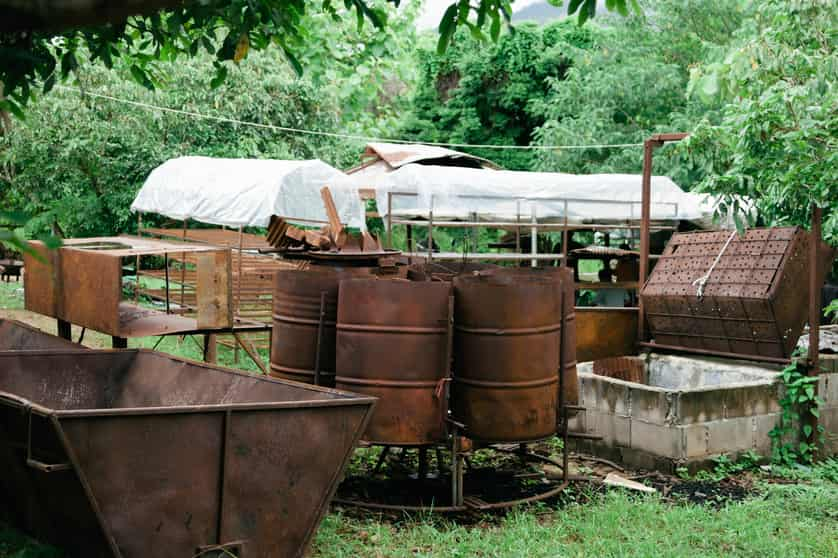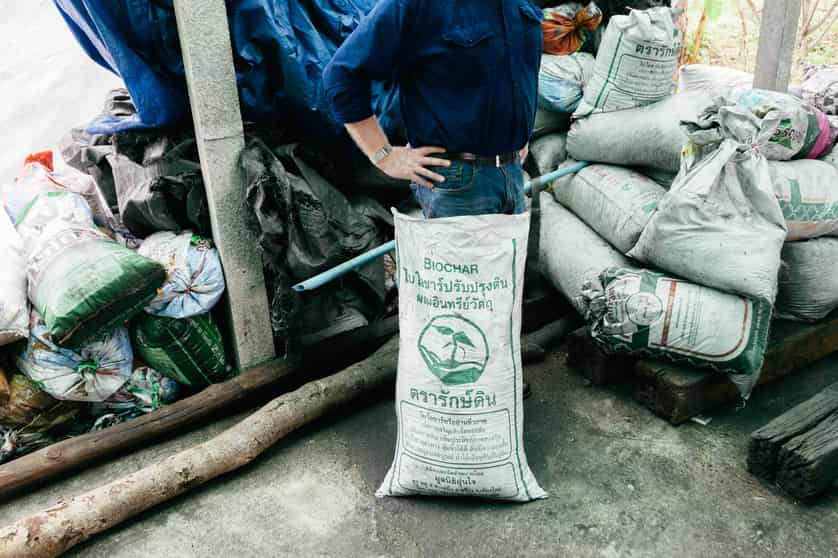For all of the complaining and exasperation we have over the pollution, it is hard to know what to do to help. As I have mentioned many times before in our media, we can only do what we are capable of. So I can write and I have a platform, and that is what I do. A friend is a doctor and she does research. One mate is a volunteer fire fighter on the weekends. Yet another is a huge social media influencer and has used her tool to reach out to the Thai masses. Someone else I know is mobilising volunteers to aggregate data into one solid resource. Basically that is all we can do at this point.

So, if you have money – and I know many of you do! – I would like to ask you to please consider digging into your pockets and kindly supporting Warm Heart Foundation’s biochar project.
Basically Warm Heart has a model ready to replicate, and the organisational structure to scale. Needless to say, they do not have the staff in place to actually implement an all-Thailand or all-ASEAN project right now. With their core staff in place, however, Michael Shafer, founder and director of Warm Heart Foundation, which Citylife has featured often over the years, as well as donating towards through proceeds raised at our Citylife Garden Fair, is certain that hiring additional trainers will pose no trouble.
The cost for these biochar production centres is USD15,000-20,000 which covers cost of materials, training, and the first year of start-up coordination. Each centre supports biochar production in 10 villages. Imagine thousands of these centres with their satellite villages across Northern Thailand, and we can begin to see major reductions in the smoke.

Shafer has spent the past two years developing a globally replicable, low investment-cost, self-propagating biochar social enterprise model. In the past two months they have raised capital to start two of them, and in a year or two will have solid performance data.
Warm Heart has the grassroots approach and contacts to build this out over a period of time, and they are already demonstrating this capability internationally. Shafer has an operation going in NE Ghana, including an incorporated Ghanaian NGO and a proposal in to the government. In Central and East Africa, he has programmes running in Malawi, Kenya, Uganda, Burundi and Zimbabwe. The International Biochar Initiative has recognised Shafer’s capabilities and has reached out to him on a collaboration targeting the African Soils Initiative. He is also slated to travel to Pakistan in the fall to help develop a Stop the Smoke Campaign there.

Shafer’s comment about getting more financial support was simply: “Great. That would speed things up a lot.” He seems to have no doubts about the viability of the project.
Looking ahead:
Now is a great time to prepare for the next round of trainings in biochar production which will take place in January/February. This is a proven and worthwhile initiative and if you can spare a few – or more – baht, then please do.
Related Article: The Heart Warming Story of Warm Heart Foundation
